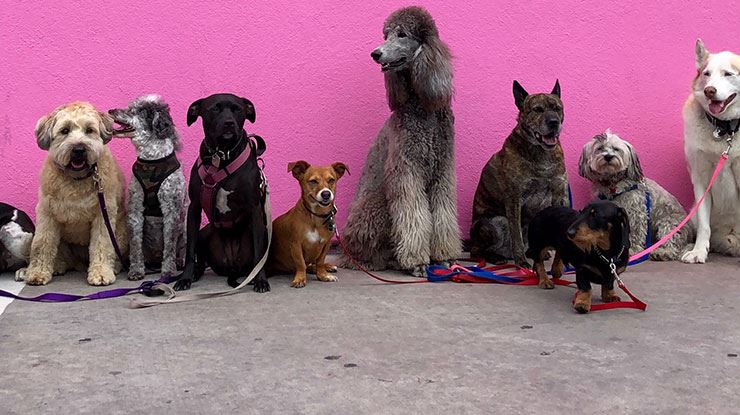
How Does Dog Care Differ Across Breeds?
People often say a pet is a lot of responsibility, and they aren't wrong. Pets need a lot of attention and care, including dog breeds with the most basic grooming and care needs. Though not every dog needs the same level of attention in every category, some dogs need special treatment.
When picking out a new dog, the breed should be the most important aspect. A dog's breed can tell you what she will and won't need. After all, a rottweiler and a Chihuahua will have a lot of differences in terms of their care needs. Everything matters, from size, fur, health, and other aspects of the dog's breed.
Grooming
One of the more obvious differences in dogs is how often they need to be groomed, if ever. Some dogs shed their hair, like Labradors, and will not require regular grooming. Meanwhile, other dogs don't shed, like Yorkshire terriers, and will need to have their hair cut every few weeks for proper hygiene.
Continually shedding dogs or dogs with long hair will need to be brushed regularly. If not brushed, long-haired dogs will develop painful mats filled with outside debris. Brushing a shedding dog will keep the extra hair from getting around the home and ensure the dog is always comfortable.
Training
While some dogs are easier to train than others, stereotypes about training certain breeds usually fall flat. Not all beagles howl all the time, and not all pit bulls are aggressive. Despite rumors to the contrary, all dog breeds can be trained without special treatment depending on breed. Yes, small and large dogs will be trained in the same things using slightly different techniques, but the execution is the same.
The most important tip is positive reinforcement. All dogs like to be praised and will do the same things over again hoping for similar results, much like people. Provide rewards based on the dog's personality and breed. Terriers may prefer a treat while a basset hounds might like a game of tug. Find out what your particular dog likes most and reward her accordingly. Just remember to keep the positive motivation consistent!
Exercise
For dogs, playing is exercise. Some dogs prefer to be lazy, so their exercise may consist of a daily walk around the neighborhood with their owner. Other dogs, such as border collies and huskies, are very energetic and like to be active. Most importantly, dogs love to play with their owners or other dogs rather than by themselves.
A toy dog left to play alone may become mischievous to get more attention. Digging in the yard or chewing on shoes is only the tip of the iceberg. At the same time, some dogs can become lonely and withdrawn if left alone. Training not to be overly dependent on the owner is an excellent way to keep your dog happy and hopeful when you have to be away.
Diet
Dogs should eat dog food as often as possible, while human food remains an occasional treat if fed to them at all. While not all human food is harmful to dogs, not knowing the difference could mean the worst for your pet. There are some foods especially good for your dog, like oatmeal to help with bowel functions and salmon for Omega-3 fatty acids. Even peanut butter can be used to help your dog eat something she doesn't want, like medicine.
No dogs should eat foods containing chocolate, gum, onions, garlic, grapes, alcohol, dairy, coffee, or macadamia nuts. The only diet plan specialized to your dog's breed is portions depending on her size. The rest of the diet plan should be personalized for whatever problems your dog may have, such as obesity, heart issues, cancers, and other specific conditions.
The Perfect Pup
Some breeds are higher maintenance than others, and some dogs like to sleep all day while others prefer to run in circles for hours on end. Every dog is his or her own being and the personality changes are vast, but dividing them by breed can help one gain an understanding early on for what kind of care they'll require. If you can't provide for a dog with high energy and lots of hair, there's no harm in looking on the other end of the spectrum. The dog will love you either way.
Bio:
Emily is a freelance wildlife conservation and pet blogger. To check out more of her work, see her blog, Conservation Folks, or follow her Twitter account @emilysfolk.










